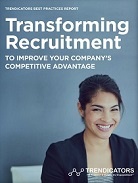
Employee recognition remains one of the most effective ways to boost engagement, morale and retention. However, as today’s workforce spans five generations, from Traditionalists to Gen Z, organizations are realizing that a one-size-fits-all approach is no longer effective. Each generation brings different values, expectations and styles of communication to the workplace, including how they prefer to be recognized.
Let’s break down how different generations like to receive recognition and how you can adapt your strategy accordingly.
Traditionalists & Baby Boomers: Respect and Formality
While Traditionalists (born before 1946) are nearly retired and Baby Boomers (born 1946–1964) are steadily exiting the workforce, many are still active in leadership or mentoring roles. These generations tend to value loyalty, discipline and formality. Recognition that highlights their legacy or long-term achievements resonates most.
How to recognize them:
- Public, formal awards or ceremonies
- Personalized plaques or service anniversary gifts
- Written letters or formal commendations from senior leaders
Boomers in particular appreciate recognition tied to effort and tenure. A well-worded speech at a company meeting or a thoughtful note from a supervisor goes a long way.
Generation X: Autonomy and Practical Rewards
Gen X (born 1965–1980) often values independence and efficiency. They’re less focused on flashy praise and more on meaningful, personal recognition that reflects their contributions without being overly public.
How to recognize them:
- One-on-one praise from managers
- Flexibility rewards (extra PTO, remote days)
- Practical gifts or development opportunities
Because Gen X often balances work with family or caregiving responsibilities, recognition that supports work-life balance is especially appreciated.
Millennials: Instant, Frequent and Purposeful
Millennials (born 1981–1996) grew up with constant feedback from digital platforms. They value timely and frequent recognition, especially when it ties to a greater purpose or mission. This generation wants to know their work matters.
How to recognize them:
- Real-time feedback via digital tools
- Peer-to-peer recognition programs
- Shout-outs on team communication channels or social media
Millennials are also motivated by growth, so recognition tied to learning, mentorship or advancement opportunities is a smart move.
Gen Z: Personalization and Visibility
As the newest generation in the workforce, Gen Z (born 1997–2012) is driven by authenticity, technology and personalization. They want recognition that feels genuine and tailored, not cookie-cutter. Like Millennials, they value public praise, but it must feel genuinely meaningful.
How to recognize them:
- Customized digital badges or social media shout-outs
- Personalized thank-you messages
- Opportunities to lead or contribute visibly to projects
Recognition that also highlights Gen Z’s individuality, such as creative thinking, unique skills or fresh ideas, lands particularly well with this generation.
A successful recognition strategy considers generational preferences but doesn’t stop there. While generational insights are valuable, individual preferences are equally important. Some Gen Z employees may prefer private recognition, just as some Baby Boomers may enjoy social shout-outs.
The key is flexibility. Offer a variety of recognition methods, encourage peer-to-peer praise and empower managers to tailor recognition to their team members’ individual needs. In today’s multigenerational workforce, the best recognition programs are inclusive, personalized and adaptable.
Because, in the end, recognition isn’t about checking a box; it’s about making people feel seen, valued and inspired to keep doing their best work.


